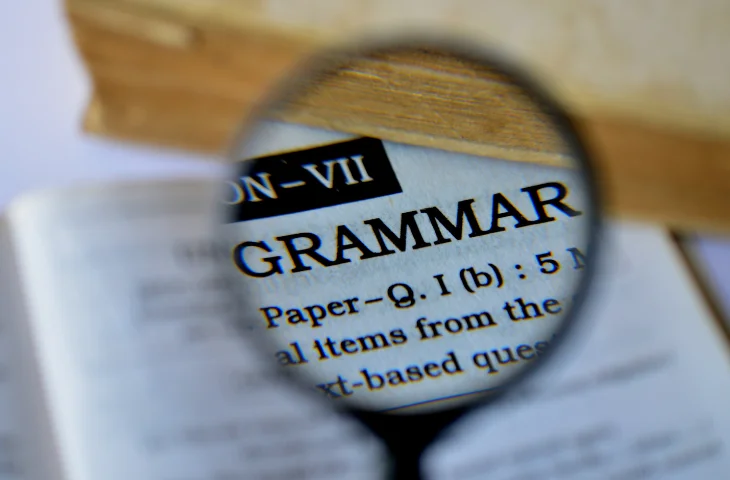Conjunctions are an essential part of English grammar, frequently tested in competitive exams like SSC, Banking, and RRB. In this blog, we will cover everything from basic definitions to types of conjunction, logical patterns, exam-specific tricks, solved questions from 2024–25 exams, and more.
What Is Conjunction in English?
A conjunction is a word used to connect clauses, sentences, or words. Common examples include and, but, or, because, although.
Why it appears in exams:
- Tests sentence construction and logical thinking.
- Checks ability to link ideas accurately.
- Evaluates understanding of grammar rules in context.
Skills required:
- Logic and reasoning to connect ideas
- Visualization to identify relationships between clauses
- Decoding sentence structure quickly
Why Is Conjunction Important in Competitive Exams?
Conjunctions are tested in almost every English exam. They assess grammar, comprehension, and logical linking of ideas.
| Exam | No. of Questions | Difficulty |
| SSC CGL / CHSL | 1–2 | Easy |
| IBPS PO / SBI PO | 1–2 | Moderate |
| RRB NTPC / Group D | 1 | Easy |
| State PSC / Police | 1–2 | Moderate |
Conjunction English Short Notes
Conjunctions can be broadly categorized into three types:
| Types | Details | Examples |
| Coordinating Conjunctions | Connect words, phrases, or clauses of equal rank | and, but, or, nor, for, so, yet |
| Subordinating Conjunctions | Connect a dependent clause to an independent clause | because, although, since, unless, while |
| Correlative Conjunctions | Pairs of conjunctions used together | either…or, neither…nor, both…and |
| Conjunctive Adverbs | Connect clauses showing relationship | however, therefore, moreover, consequently |
Logical patterns:
- Cause – Effect: because, since
- Contrast: but, although, yet
- Choice: or, either…or
Quick Revision Summary
Some of the quick revision tricks to solve questions based on conjunctions are as follows:
| Concept | Details |
| Coordinating | Connects equal parts of sentence |
| Subordinating | Connects dependent clause to main clause |
| Correlative | Works in pairs to connect ideas |
| Cause & Effect | because, since, so |
| Contrast | but, yet, although |
| Choice | either…or, neither…nor |
What Are the Types of Conjunction Questions in English?
Types of questions asked from the topic of conjunctions are as follows:
- Fill in the blanks: Choose the correct conjunction.
- Sentence rearrangement: Logical connector identification.
- Error spotting: Incorrect conjunction usage.
- Matching pairs: Identify correlative conjunctions.
Conjunction Question Patterns in English
- Fillers: “I will go ___ you come with me.” (and / but / or)
- Logical connectors: “She was tired, ___ she continued working.” (yet / so / and)
- Pair recognition: “___ … ___” – either…or, neither…nor
- Time-saving trick: Read clauses first – identify relationship – select correct conjunction.
Conjunction Tricks for SSC CGL and Other Exams
Some of the tricks to solve conjunction questions easily are as follows:
- Identify clause type first (independent/dependent).
- Look for keywords indicating contrast, reason, or choice.
- Start from the blank, check surrounding context.
- Eliminate options that do not fit the logic.
- For correlative pairs, ensure both words are present.
Solved Conjunction Questions from 2024–25 Exams
1. SSC CGL 2024 Tier 1 Shift 2 – Memory-Based
Q: I was hungry, ___ I didn’t eat anything.
Answer: but
Explanation: “but” shows contrast between hunger and not eating.
2. IBPS PO Prelims 2024
Q: She will succeed ___ she works hard.
Answer: if
Explanation: Subordinating conjunction “if” shows condition.
3. RRB NTPC 2024
Q: ___ you study, ___ you will pass.
Answer: Either … or
Explanation: Correlative conjunction for choice.
4. SSC CHSL 2024
Q: He is rich ___ not happy.
Answer: but
Explanation: Indicates contrast.
Conjunction Concepts for Bank Exams
Banking exams often ask symbol-coded or logic-based conjunction questions, e.g.:
- A works only if B works → conditional/subordinating connection.
- X is rich, Y is poor, Z is rich → choose correct connector: “but” or “and”.
Example:
- Q: A is honest ___ he is poor.
- A: but (Contrast relationship)
Common Mistakes to Avoid while Solving Conjunction Questions
Common mistakes to avoid while solving questions based on conjunction are as follows:
- Using “and” instead of “but” for contrast – read meaning carefully.
- Ignoring correlative pairs – check if both words are present.
- Confusing subordinating with coordinating conjunctions – identify dependent clauses.
- Not reading the whole sentence context – can change meaning.
- Overlooking time or condition indicators – “when”, “if”, “since”.
FAQs
A: Identify the relationship between clauses first—cause, contrast, or choice—then select the correct word.
A: Yes, typically 1–2 questions in the English section.
A: Not recommended; easy scoring and often repeated.
A: Questions coded with symbols or logic statements to replace conjunctions.
Example: for “if…then”.
A: Correlative work in pairs (either…or), coordinating join equal elements (and, but).
- Nainital Bank SO Final Result 2026 Out for 74 Posts, Download Link
- SSC JE Vacancy 2025, Check Post-Wise List & Eligibility
- Top RRB ALP MCQ Questions, Download Free PDF
- Delhi Police Vacancy 2025, Check Exam wise revised vacancies
- SSC JHT 2025 Paper 1 Question Papers, Shift-Wise PYPs, Download PDFs
- SSC GD 2025 CBT Question Papers, Shift-Wise PYPs, Download PDFs

Hi, I’m Aditi. I work as a Content Writer at Oliveboard, where I have been simplifying exam-related content for the past 4 years. I create clear and easy-to-understand guides for JAIIB, CAIIB, and UGC exams. My work includes breaking down notifications, admit cards, and exam updates, as well as preparing study plans and subject-wise strategies.
My goal is to support working professionals in managing their exam preparation alongside a full-time job and to help them achieve career growth.
